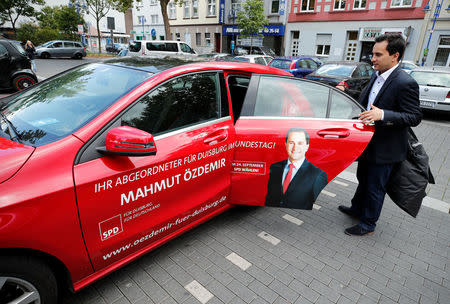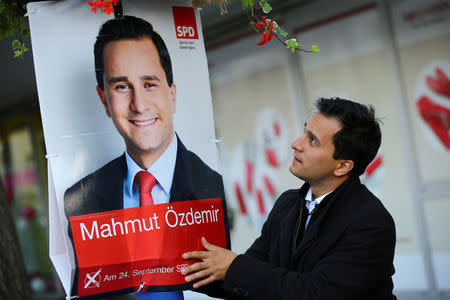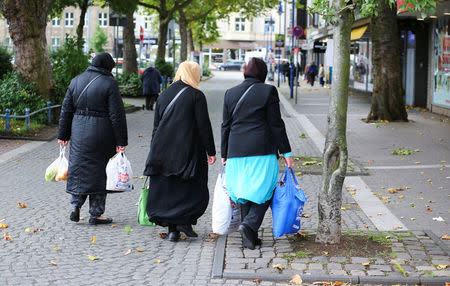In German rustbelt, Merkel challenger's social justice pitch falls flat
By Thomas Escritt DUESSELDORF/DUISBURG, Germany (Reuters) - The steelworks in Duisburg employed 3,000 people when it was closed in 1985. Today, the disused factory, now a park showcasing the city's industrial heritage, gives work to dozens of curators, artists and athletes. Its fate is a symbol of the Ruhr, the mining and heavy industry region that drove West Germany's post-World War Two economic recovery and whose working class communities provided the backbone of the centre-left's Social Democrats (SPD). Martin Schulz, the party's leader, has been targeting the Ruhr with his campaign to fight inequality, arguing headline figures showing a healthy German economy masks pockets of deep poverty in parts of the country. But with unemployment at its lowest in decades, that message has gained little traction, and the SPD, up to 17 points behind Chancellor Angela Merkel's conservatives in the polls, looks set to be roundly beaten in Sunday's elections. Merkel's message, that the economy needs to be rendered fit for the future by investing in digital technologies, appears to resonate more in Germany at a time of strong growth. "Social Democracy was rooted and anchored in the Ruhr, but in past decades that has unwound," said Stefan Marschall, a politics professor at Duesseldorf University. The SPD's unexpected loss to the conservatives in a regional election there this year was an early sign that Schulz's campaign was faltering. The city of Duisburg remains an SDP stronghold, but in the bellwether state of North Rhine-Westphalia, home to a quarter of Germany's population, the party's vote share has been slipping for decades as industry cedes its place to a service economy. DUESSELDORF WINS, DUISBURG DOESN'T Duesseldorf, the state capital just 30 kilometres (19 miles) away, has been a beneficiary from the transformation, growing richer as the economy shifts towards lighter industry and services. But Duisburg has been a loser in the transition. On Duesseldorf's Koenigsallee, lined with expensive boutiques and the offices of private banks and law firms, besuited lunchtime shoppers had doubts about Schulz's message that neighbouring Duisburg needed their solidarity. "It's difficult to talk about social justice," said Ruslana Jebackers, a young mother who was leaning towards voting for the pro-business Free Democratic Party (FDP), a potential coalition ally for Merkel's conservatives. "We pay a lot of taxes, but we don't get much social justice of our own, like support for my family," she added. For Mahmut Ozdemir, one of the SPD candidates in Duisburg, the city needs support to reinvent itself, developing its inland port - now Europe's largest - on the Rhine. Under the state's new conservative-FDP government, the city will suffer, he says. "People will quickly realise what it means when the SPD is not in charge." Nur, a 17-year-old interviewed in a marketplace in the deprived Duisburg district of Marxloh, liked Ozdemir's message. "This guy said he cared," she said, expressing the hope that the lawmaker could help to cut food prices. Schulz's message gets a better reception with older voters. "Merkel says we live well and happily in this country, but we don't all live well," said Christel Link, walking with a friend down the Koenigsallee. "All my three children are hard-working, they studied but they have difficulty making ends meet. It doesn't have to be like that." (Reporting By Thomas Escritt, editing by Peter Millership)




